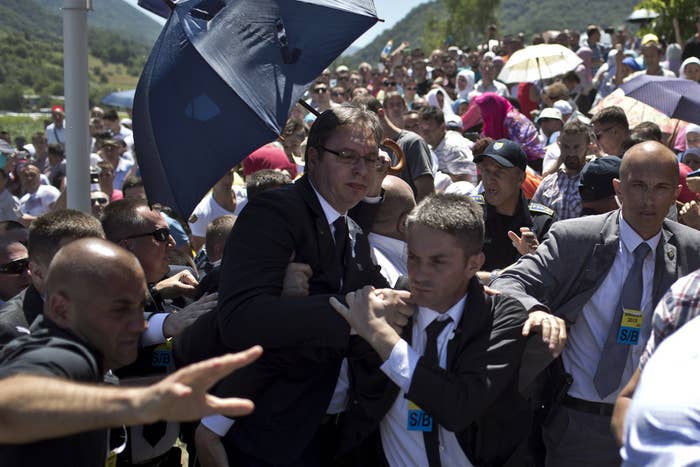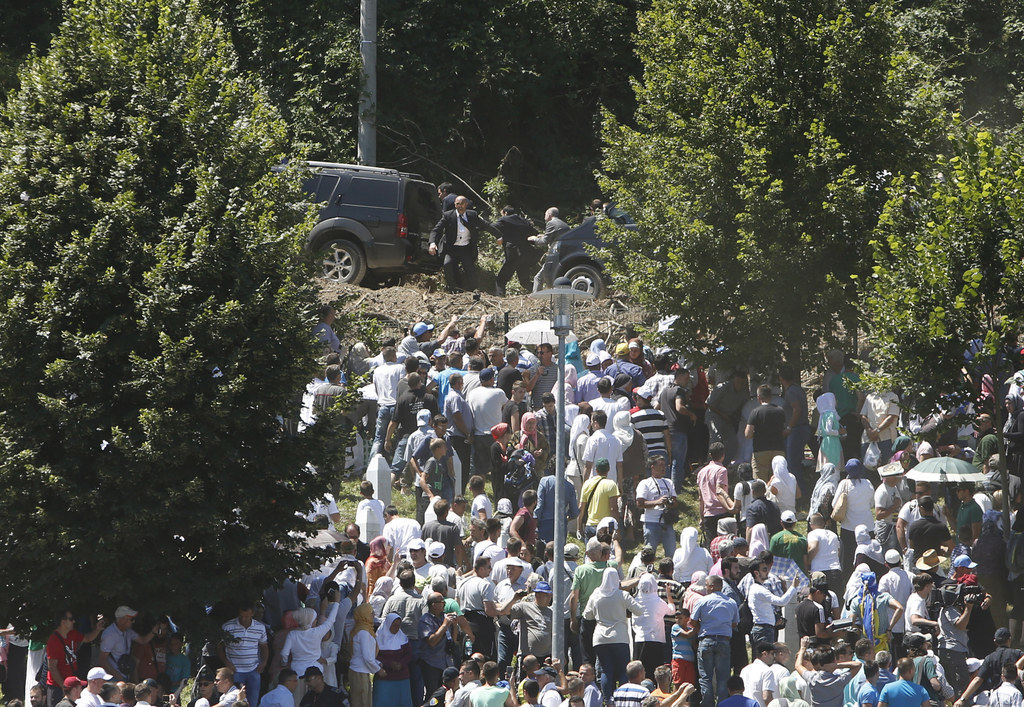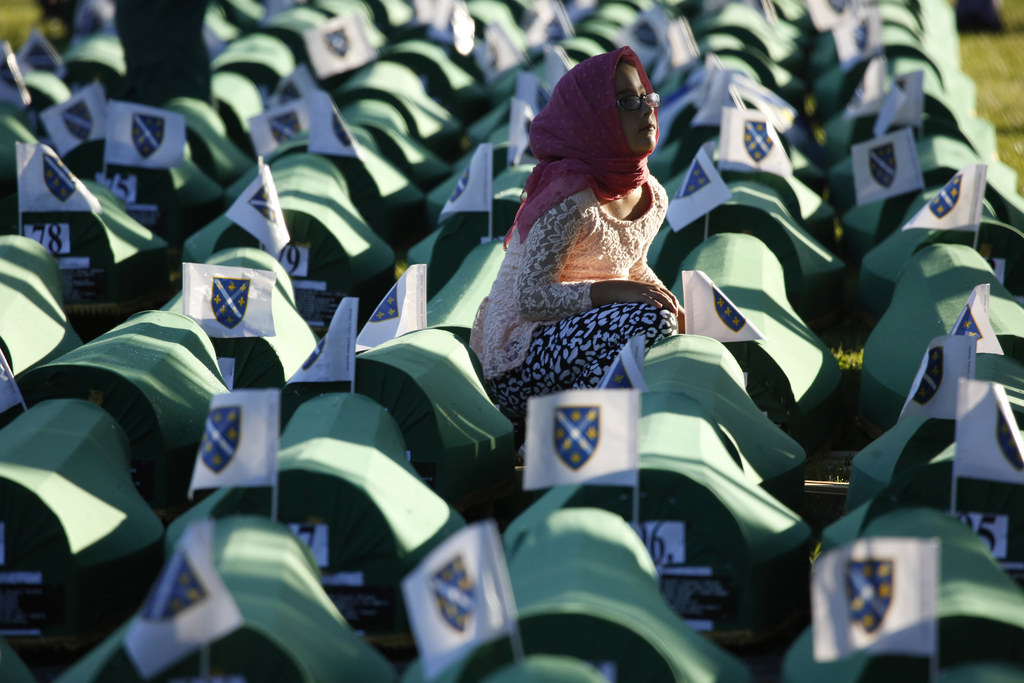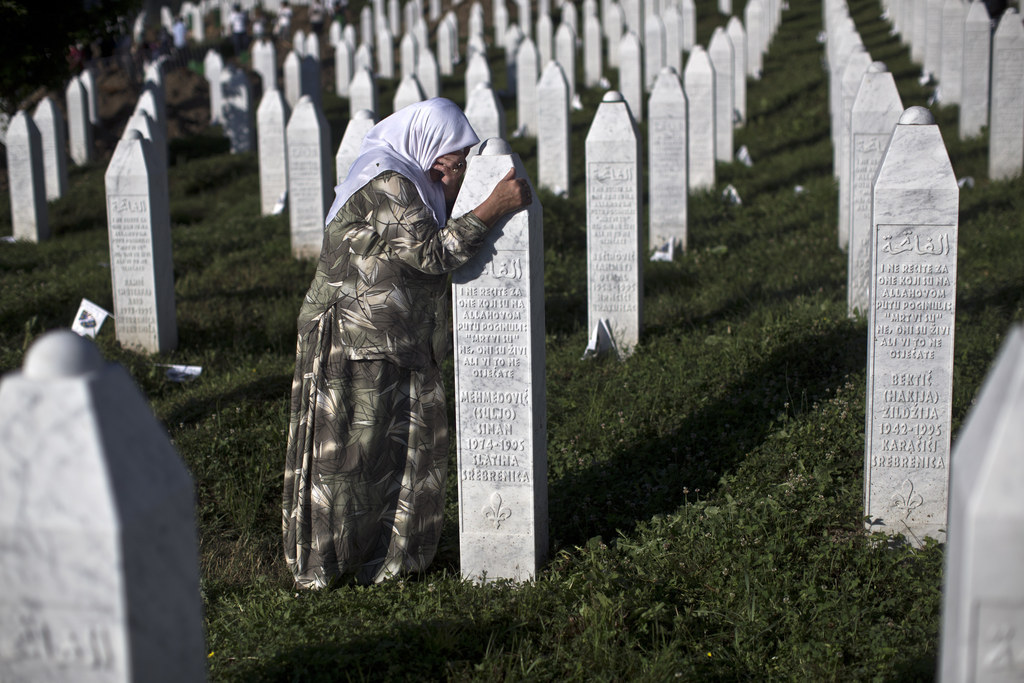Serbian Prime Minister Aleksandar Vucic was chased by stone-hurling crowds at a 20th anniversary commemoration of the Srebrenica Massacre in Bosnia on Saturday.

During and after the 1990s inter-ethnic war in Bosnia, Vucic's country backed the Bosnian Serbs, who killed an estimated 8,000 Muslim boys and men in the town of Srebrenica.
After condemning the "monstrous crime" committed in Srebrenica, Vucic traveled to a monument to the Bosnian victims to pay his respects, but crowds soon began began chanting "Allahu Akbar" (God is Great) and hurling stones, the Associated Press reported.
Photos and footage from the scene show the prime minister running for cover, shielded by body guards, as crowds chased them yelling.

Vucic's spokesperson told the AP in a statement that the prime minister was hit in the face with a stone and that his glasses were broken in the melee.
View this video on YouTube
The Serbian government reacted within hours of the incident, calling the treatment of its prime minister an attack against the country.
"It is an attack not only against Vucic but against all of Serbia and its policy of peace and regional cooperation," Foreign Minister Ivica Dacic said in a statement.
Yet Vucic himself tweeted a more measured statement, reassuring the Serbian and Bosnian people that the stone-throwing would not affect the peace between their countries.
"Despite what happened in #Srebrenica, Bosnians still extend the hand of reconciliation," Vucic wrote. "We have to live together in peace."

Politicians from around the world have expressed their solidarity with both Vucic and the population of Srebrenica.
Vice President of the European Union Commission Federica Mogherini commended Vucic for even attempting to appear in Srebrenica at the memorial.
My solidarity to @avucic who made the historical choice of being present in #Srebrenica. Peace can be built only on reconciliation
President Bill Clinton, who led the U.S. at the time of the massacre, wrote and tweeted a note to the people of Serbia, encouraging them to pursue more peaceful cooperation in the future.
Before stones were thrown, Clinton had said in a short speech, "I want to thank the prime minister of Serbia for having the courage to come here today and I think it is important that we acknowledge that."
The Clinton administration led the NATO airstrikes against Serb positions in the '90s, ending the Bosnian war and brokering a peace agreement.
We hope your determination to recover & honor your loved ones inspires a more peaceful & cooperative future. #Bosnia
The US Embassy in Sarajevo released a statement on the attack, echoing Clinton's remarks and condemning the attack on the prime minister.
As Former President Clinton said in his remarks honoring the 20th anniversary of the genocide in Srebrenica today, it took courage for PM Vucic to attend the commemoration. The U.S. Embassy in Sarajevo condemns the subsequent attack on the Prime Minister. Many of the mourners were horrified by the violence and disheartened that it disrupted the solemnity of the anniversary. The U.S. Embassy in Sarajevo shares that sentiment, and urges all to focus once again on the victims of the Srebrenica genocide and their families.

On the 20th anniversary, 136 newly-identified victims of the '90s killings were laid to rest Saturday alongside the original memorial.
Many of the victims' bodies were dismembered and buried in "secondary" grave sites at the time, in order to hide the scale of the massacre. Remains continue to be found throughout the region, even two decades after the atrocity.
Though multiple international tribunals have referred to the massacre – which killed more people than any mass killing since World War II – as a genocide, Serbian and Bosnian Serb officials have long refused to acknowledge it as such.


